Description
ABSTRACT
A Comparative Review of the Environmental Liability of Parent Companies for the Acts of their Foreign Subsidiaries
Emwanta Ehigiato*
This article seeks to examine the liability of parent companies for environmental damages or harms attributable to the operations of their subsidiaries operating in foreign jurisdictions. The issue has attracted judicial pronouncements in several jurisdictions and this article focuses attention on four selected jurisdictions namely, Nigeria, United Kingdom, United States of America and Canada. The general rule is that a parent company is not liable for the acts of its subsidiary and by extension its foreign subsidiary based on the doctrine of corporate personality which is a worldwide company law principle that has held sway over the years. However, the doctrine of corporate personality admits of certain exceptions as the veil of incorporation may be pierced or lifted in certain circumstances to make a parent company liable for the environmental damages caused by its foreign subsidiary. Aside from piercing or lifting the veil, liability could also be directly imputed to the parent company based on specific statutes as well as judicial interpretation of the relationship between a parent company and its subsidiary. Some of these jurisdictions have developed legal principles and legislation to cover the liability of a parent company for the environmental damages of its subsidiary in certain areas. The article concludes by highlighting the circumstances under which a parent company can be held liable for the environmental damages of its foreign subsidiary and makes recommendations on measures to minimize such liabilities.
INTRODUCTION
This paper focuses on the environmental liability of parent companies for the acts of their foreign subsidiaries1 Discussions will be limited to environmental liability2 as distinct from other liabilities that may be recognized by other branches of law such as contract, employment3 tort4 and competition
*LL.B, BL, LL.M, MBA, ACIS. Partner, Giwa-Osagie & Co, Lagos
- A foreign subsidiary is a company incorporated outside the jurisdiction of the parent company. Under Nigerian company law, foreign subsidiaries can legally operate in Nigeria. The law requires that any foreign company wishing to carry on business must register a company in Nigeria. This is in line with section 54(1) of the Companies & Allied Matters Act, Cap C20, LFN 2004 (CAMA). Agip (Nig) Ltd v Agip Petroli Int’l (2010) 5 NWLR (Pt 1187) SC 348. The law however recognizes some exceptions to the requirement of local incorporation for foreign companies seeking to do business in Nigeria. See Emwanta Ehigiato, ‘Mandatory Incorporation of Foreign Companies in Nigeria: Some Legal Consideration’ (2015) 6(1) The Gravitas Review of Business & Property Law 19-27
- Environmental liability is an obligation predicated on the principle that a polluting party is required to pay for any or all damages caused to the environment by its activities. Under the common law, environmental litigation may be based on negligence, nuisance, strict liability and trespass
- A parent company may be liable in damages to the employee of a subsidiary company in certain situations like the English case of Chandler v Cape PLC (2011) EWCA Civ 525. The Court of Appeal implied a direct duty of care on a parent company to the employee of its South African subsidiary company who contracted asbestosis during the period of his employment. In holding the defendant parent company liable, the court did not rely on the principle of lifting the veil but alluded to a breach of duty of care owed by the defendant to the employee and the defendant was held to be liable for the tort of negligence
- Chandler v Cape PLC, ibid. See Stefan H C Lo, ‘A Parent Company Liability to Employees of a Subsidiary’ (2014) 1 Journal of International and Contemporary Law 117. It should be noted that environmental liability may arise from tort of negligence, nuisance and the rule in Ryland v Fletcher (strict liability)

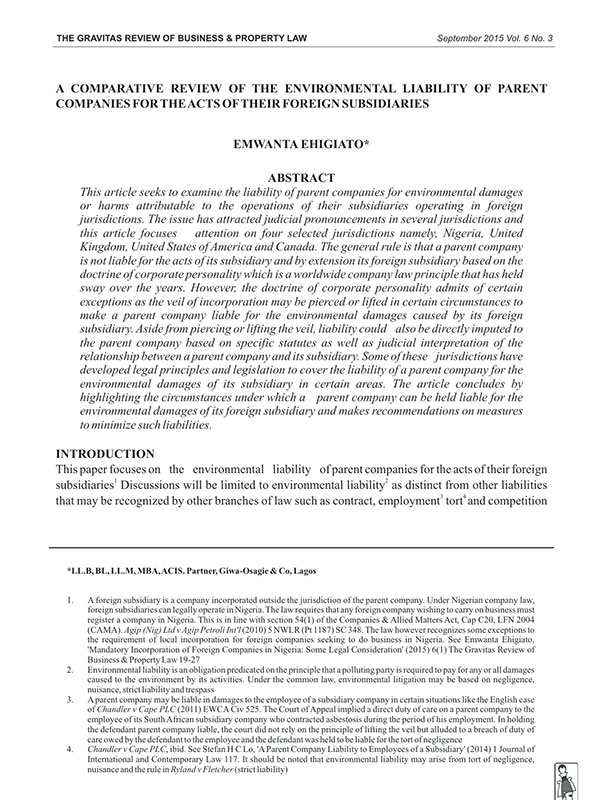
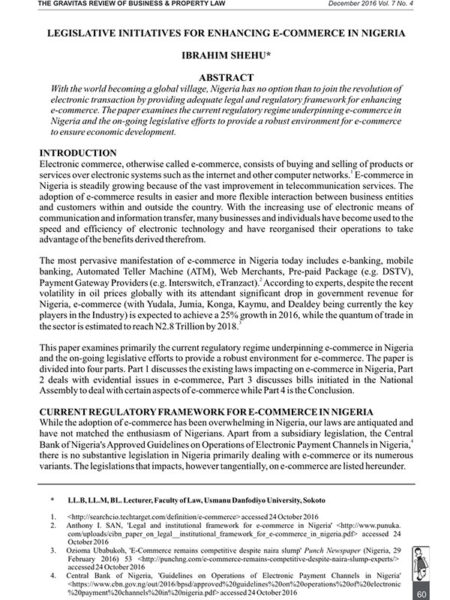
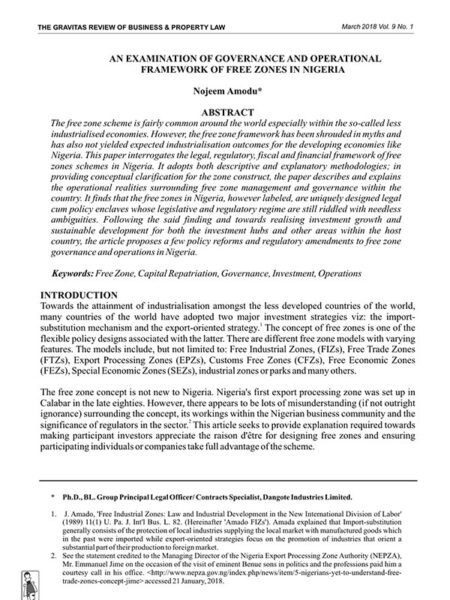
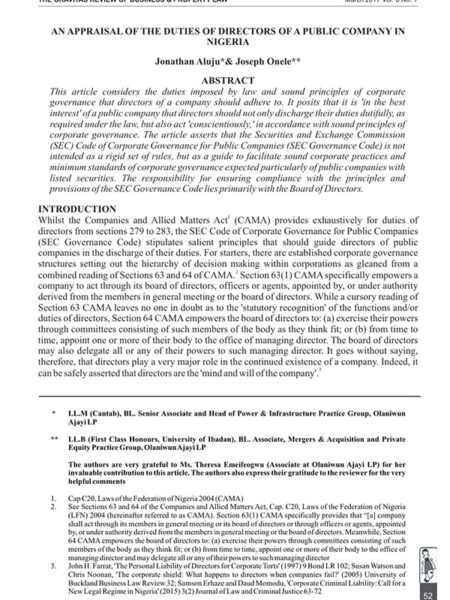
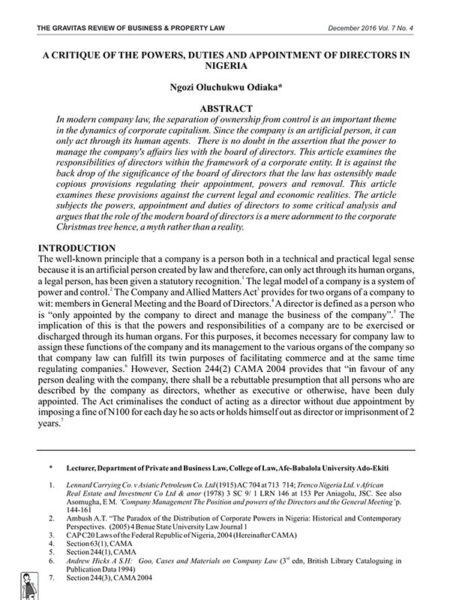


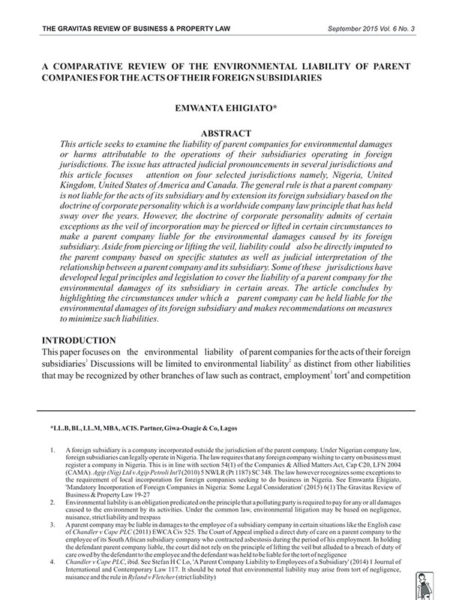
Reviews
There are no reviews yet.